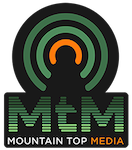The NHL is still waiting for clearance from the Canadian government to allow all players’ families to join the bubble for the conference finals in Edmonton, sources told ESPN on Saturday.
Family members who are Canadian citizens and are currently in Canada are able to join the bubble, though they must self-isolate at home for seven days and produce three negative COVID-19 tests before traveling. They then must quarantine in a separate hotel room in the bubble and produce four negative tests before they can interact with players.
The NHL and NHLPA, however, have been in discussions with the Canadian government about additional exemptions for family members who must travel across the border, sources told ESPN. As of Saturday, the Canadian government has yet to allow clearance, though an NHLPA source said the organization remained “hopeful” something could be figured out, especially for the Stanley Cup Finals.
The Western Conference Final, pitting the Vegas Golden Knights against the Dallas Stars, begins Sunday. The Eastern Conference Final, featuring the Tampa Bay Lightning and the Islanders–Flyers winner, will begin Monday.
When the NHL and NHLPA organized protocols for the playoffs, they agreed “spouses, partners and children” would be able to join the bubble by the conference final stage. However at the time of the deal in July, things were moving fast — the deal was agreed to on a Friday night, and training camps began that following Monday. The government in Alberta gave exemptions for NHL teams and staffers to skirt the federally mandated 14-day quarantine, however it said they still needed to mull over the request for additional family members to join later.
The NHL and NHLPA didn’t want to hold things up, so they agreed to go forward with their deal, hopeful the issue would resolve before the conference final stage. Both sides figured if they got the tournament off the ground and showed a good track record, the Canadian government would accommodate the request for family members. The NHL and NHLPA sent its proposed protocols for family integration to Alberta health officials, though the government could come back with a different plan, at which point the sides would open another discussion.
Through the first month of the tournament, which has been held in Edmonton and Toronto, the NHL has reported zero positive confirmed COVID-19 tests. Just last week, 2,814 tests were administered. Every member of each team’s 52-person traveling party is tested daily, and family members will also be tested daily in the bubble.
Since there would be additional quarantine requirements should any family members fly commercially to Edmonton, the NHL and NHLPA, as well as the remaining teams, have been working together to organize charter flights from the teams’ cities. According to sources, the exact number of days for quarantine for family members isn’t black and white, but rather discretionary, determined by the event’s medical director. If a person is traveling from a COVID-19 hotspot, for example, the event medical director could issue a longer quarantine.
According to the protocols agreed to by the NHL and NHLPA, should families join the bubble, they would be able to attend games toward the end of the quarantine — as long as they are socially distanced in the arena, and do not interact with players after the game. Once they are out of quarantine, players may choose to stay in the hotel with their families, stay in their own hotel rooms, or toggle in between.
In an appearance on ESPN on Ice last month, Vegas forward Jonathan Marchessault described why the issue is complicated for many players.
“At first, I was like, it won’t be too bad. It will be 30-something days without seeing my family, and they’ll come to meet me if we happen to make it past the second round,” Marchessault said. “Well, now the NHL is telling us that they first of all have to quarantine for a week at home. During that time, they need to get tested three times, and have three negative tests obviously. And after that, they have to fly in private.
“Our team is fortunate enough that our owner is unbelievable and our team takes such good care of us that they would provide flights for families. But after that, you have to ask my four kids, all under 6 years old, to stay in a [two-bedroom] hotel room for four days. … I don’t think it’s realistic, really. Right now, I know that a lot of our guys on our team with families were waiting to see what’s really going to happen and then we’ll cross the bridge when we get there. But I know personally, my wife is leaning toward not coming right now.”
The NHLPA and team services personnel have been providing resources for family members, pointing them in the right direction on how to best procure tests for their seven days of isolation before travel.
Many players have struggled being away from their loved ones, including Islanders captain Anders Lee — whose wife, Grace, gave birth to the couple’s first child in March.
“All of us here miss our families, our kids, our wives at home, our support systems at home, our moms and dads,” Lee said recently. “Everyone has been so strong for us, taking care of all the little things, day-to-day. They give us the opportunity to be here in the bubble, chasing our dreams down and kind of managing everything from the kids to the house to all those things. Our support system has been phenomenal. I know as a group that we can’t thank them enough for that. We’re doing our best here to make our time away from our families worth it.”
Dr. Issac Bogoch, an infectious disease expert in Toronto who has consulted the NHLPA, told ESPN last month that he supported the idea of family members eventually integrating the bubble, as long as it was done carefully.
“I think we have to also balance this, and appreciate that they are professional athletes, but they’re also humans,” Bogoch said. “Being away from home, from your wife, your children, your family for a couple of months will be rather challenging. So I think it’s an appropriate balance that about a month or so, families can come in as long as it’s done in a very safe and controlled manner.”



